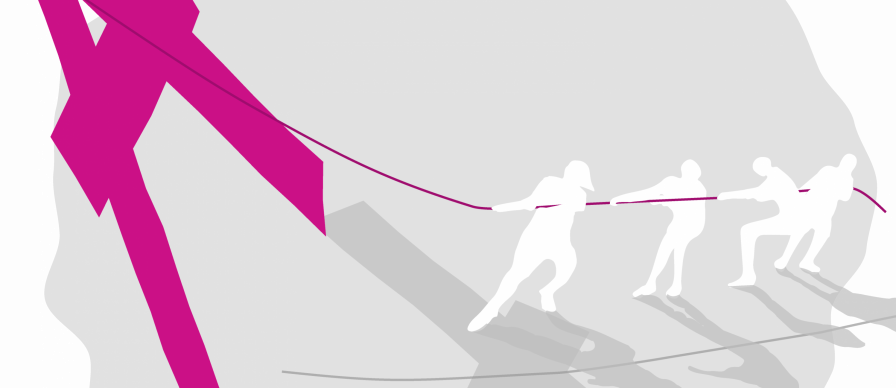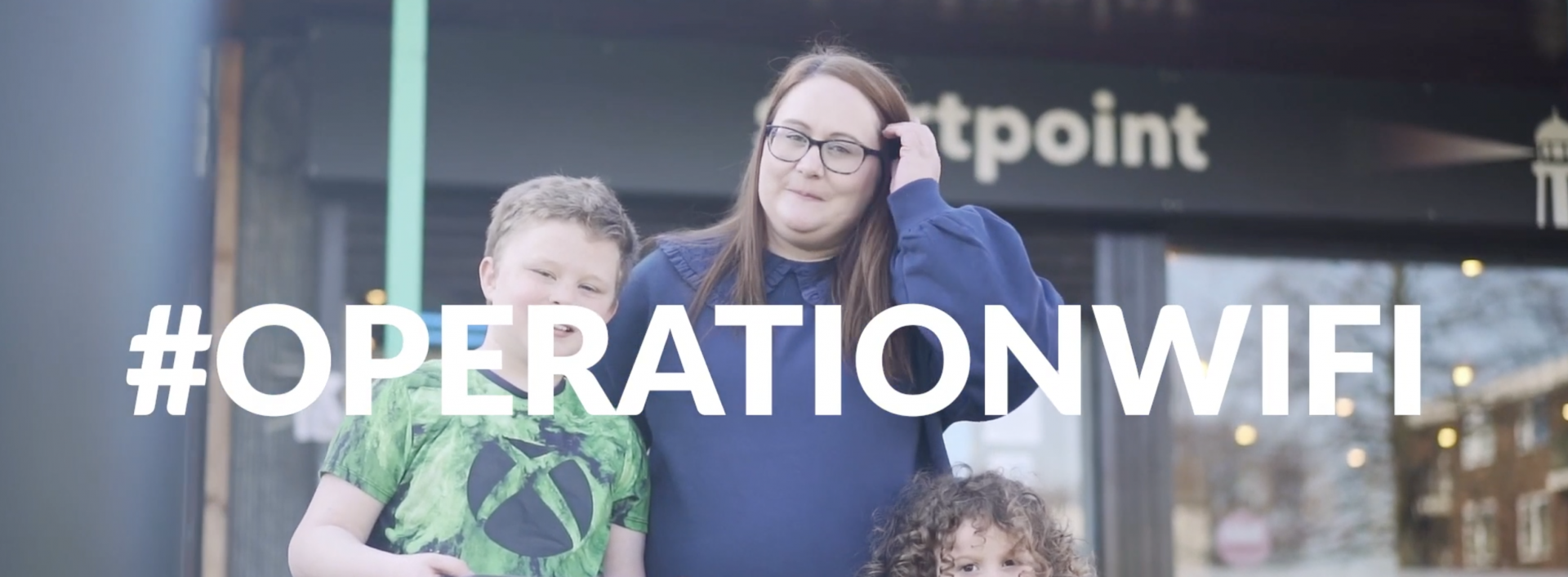Sacha Bedding, CEO of The Wharton Trust stated that, “We knew at this time, access to the internet was invaluable, in fact, to stay safe, stay connected and stay informed, it’s as important as any core utility. We also knew that for many people in the Dyke House area of Hartlepool it is beyond reach. They simply cannot afford broadband connections and rely on mobile data services, predominantly from a pay as you go provider. Access in this way is expensive and often piecemeal as the upfront costs for an accessible level of data is way more than what is affordable. £30 worth of data or £30 worth of food; is not a choice that should have to be made.”
The campaign started on the 19th March, by a tweet put out by Community Organisers calling for the largest open free wireless network for low-income communities, using the hash tag #OperationWiFi. It reached over 12,000 people and even led to prominent politicians such as Danny Kruger MP acknowledging the issue and asking for a solution.
By the 23rd of March, with lockdown announced, this ask had reached over 50,000 people. The debate around Internet connectivity as a luxury, was shifting towards the recognition of it being an essential need and the idea of bridging this digital divide was gaining momentum.
Due to the early momentum Community Organisers launched #OperationWiFi as an independent campaign on the 29th March alongside initial partners Keyring, Camarados and the Local Area Coordination network.
The campaign had 3 key asks:
- To ensure those on the lowest incomes can get access to data
- That no person is without a device to access the internet
- No person is left behind due to the lack of skills of how to use their device
How it evolved
The challenges posed by the lack of internet connectivity became starker as lockdown measures took hold. Nicola Dean founder of the social enterprise StartPoint in Stockport reported that, “We saw signs go up in windows where people were begging someone to get some help or call a charity on their behalf because they couldn’t go online to find out where food banks are, call the GP or get their medication. What was increasingly obvious was the link between digital exclusion and poverty. And how this was exacerbated over the pandemic for those on the margins or with the very least”.
In Birkenhead, Eve Barrett, Manager at North Birkenhead Development Trust reported how in conversations with local mums, concerns were raised about how parents with limited or no access could not keep their children engaged with schoolwork. Eve said, “more and more of school learning is going online with the use of iPads and technology, parents do not have access to the technology or the broadband to enable them to replicate what they do at school”.
The concerns of local people were heard but despite moves from central government such as the issuing of free laptops to school students who needed them, this only scratched the surface of what needed to be done. This was a national issue. But locally people couldn’t wait for central Government action. Across our network people began to take localised responses.
High Trees Community Development Trust launched a Crowdfunder and started distributing laptops to people of all ages who needed them, and Stockport Council (after lobbying by Starting Point) agreed to support the concept of a lending library for both data and devices.
Sacha Bedding of The Wharton Trust in Hartlepool, was also featured on BBC Radio Tees highlighting how they, supported by the Masons, were distributing laptops and data to children who needed it.
Device but no data
#OperationWiFi and the issue of data poverty was gaining widespread attention. It was featured in an article in The Guardian, Prince Charles highlighted the issue of data poverty in a thank you video to teachers, many BBC articles were being published including one sharing pictures of “six children sharing one phone” and one of the alliance members, Ryan McMurdo, spoke to Baroness Barran about this issue in more detail.
In July we saw a move from the Department for Education who announced a partnership with BT to create 10,000 free WiFi hotspots for children who do not have the internet at home via a voucher scheme. However, despite this, as the lockdown started to ease we began to hear the real stories of loneliness and isolation with many adults still not having access to devices or data.
We heard stories of people like Joy who had been spending upwards of £30 per week on mobile top ups to keep connected to her daughter, John who had been sanctioned for failing to look for work as he had run out of mobile data and couldn’t afford to top up his mobile phone and Zenya who did not have a device or broadband at home to complete mandatory training to volunteer with the NHS.
These stories highlighted the breadth of the challenge faced by those who are digitally disconnected. To respond to this challenge Community Organisers hosted an online conversation with over 100 people and organisations to ‘crowdsource’ ideas to fix the digital divide in partnership with Local Trust and Toynbee Hall.
These conversations led to a reformed ask for the #OperationWiFi campaign. This ask, drawing on learning from other parts of the globe, was to enable the gifting of data to a national databank so users’ unused mobile phone data could be distributed to those who needed it. A campaign coordinator was recruited to lead the formation of the alliance.
A National Databank
Over the last 6 months the alliance has evolved significantly with over 100 national and local civil society organisations joining from across the public, private and voluntary sector.
The campaign has grown into a wider movement with organisation’s pledging their support for the campaign and supporting the ask for a National Databank.
The growth of support for the campaign led to Nick Gardham, CEO Community Organisers speaking at the APPG for Left Behind Neighbourhoods in January about the #OperationWiFi campaign and in March many Housing Associations joined the alliance after he called for a “National Databank” at the HACT event.
As part of the ongoing campaign Members of the alliance pledged as part of the “random acts of kindness” Twitter campaign to donate their data if there was the opportunity to do so. This campaign was picked up by a national telecommunications provider, which opened conversations with the alliance about the potential for a national databank, with this idea currently being explored in more detail.
The campaign is continuing to grow and develop and as lockdown measures start to ease it is important to remember that data poverty and the impact of the digital divide is not confined to the global pandemic. This issue, existed before, during and will continue to do so. And it is important now, more than ever that those involved in tackling the digital divide can stand together and support the ask to ensure that no person is left without data, a device and the skills to keep connected.
To become a member of supporter of the Alliance click here



